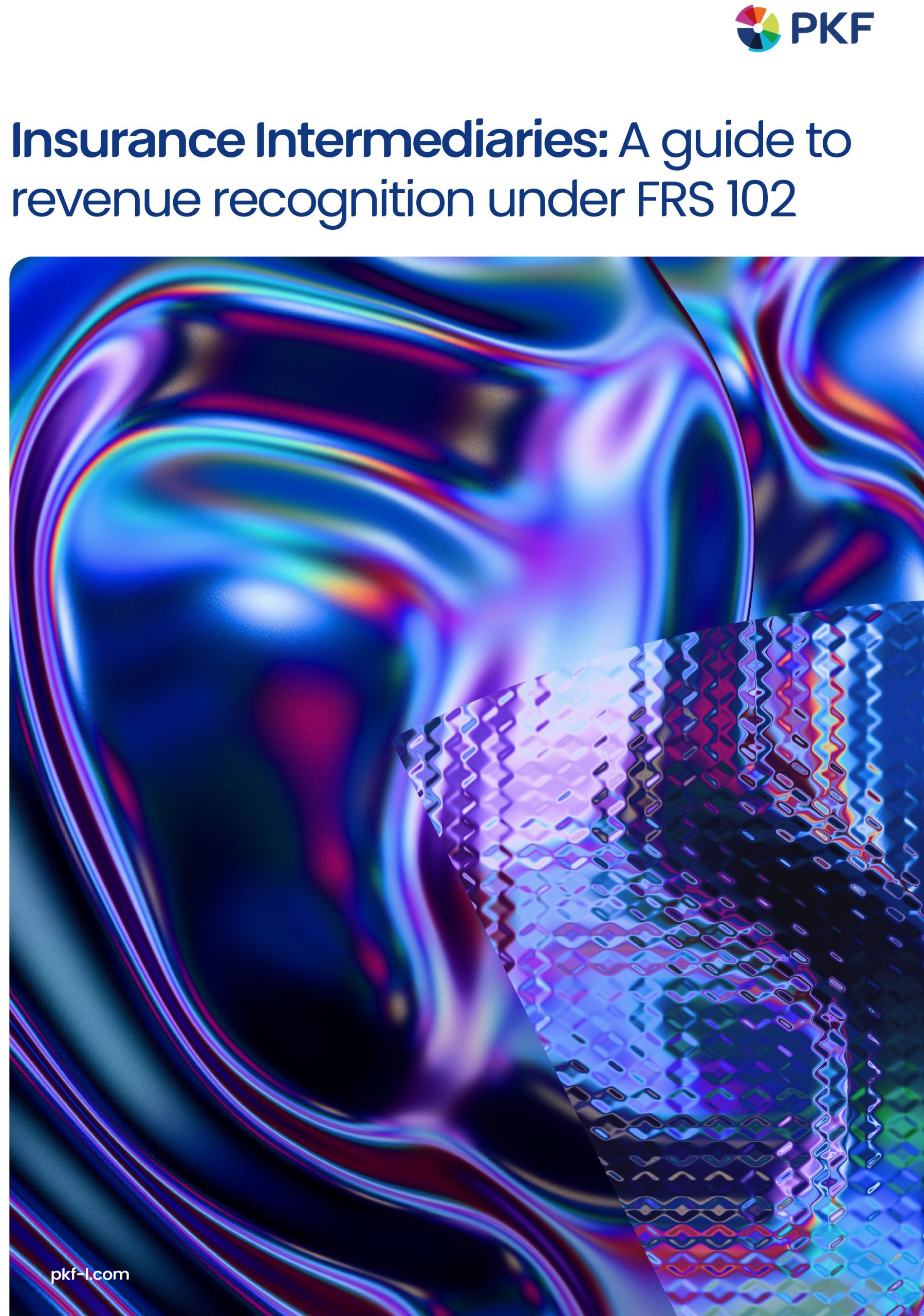3min read
Insurance Intermediaries – A guide to revenue recognition under FRS 102
Insurance Intermediaries

Introduction
In March 2024, the FRC made amendments to FRS 102. These include a new model of revenue recognition based on IFRS 15, a new model of lease accounting based on IFRS 16 and various other incremental improvements and clarifications – all of which will impact insurance intermediaries. The revised standard is applicable from 1 January 2026.
Revenue recognition
Revenue recognition will potentially have the biggest impact on insurance intermediaries. Under the FRS 102 amendments, you will need to assess contracts to determine the timing and amount of revenue to be recognised as follows:

The impact
As a result, insurance intermediaries’ reported
results will change, impacting EBITDA and
therefore commercial considerations such
as staff bonus arrangements, loan covenant
compliance, deferred consideration calculations,
valuation and investor performance reviews.
These changes are significant, and management
should consider performing an impact
assessment, engaging with investors and other
business partners to understand the impact
of revenue recognition changes to contractual
terms, and consider the data requirements.
The five-step model
Under the FRS 102 amendments insurance Intermediaries will need to assess their contracts to determine the timing and amount of revenue to recognise. The key change is the introduction of a single comprehensive
five-step model for revenue recognition for all contracts with customers broadly aligned with IFRS 15, but with some simplifications. The five steps are:

1. Identify the contract(s) with a customer

2. Identify the performance obligations in the contract

3. Determine the transaction price

4. Allocate the transaction price to the performance obligations

5. Recognise revenue when (or as) the entity satisfies a performance obligation
Your experts
PKF is ready to support you
PKF is ready to support insurance intermediaries. We can help you evaluate the impact of the impending changes on your financial reporting and your business, navigate the transition to FRS 102 and beyond, drawing on our technical accounting expertise and in-depth understanding of the insurance intermediary market.
Financial Accounting Advisory Services (FAAS) team
We provide a wide range of accounting advice, assistance with implementation of new accounting standards, transaction support and technical training services to support your business in an increasingly demanding financial reporting environment.
With an unprecedented era of regulatory change and enhanced reporting requirements, the need for transparency for investors, owners and regulators has never been more important.



